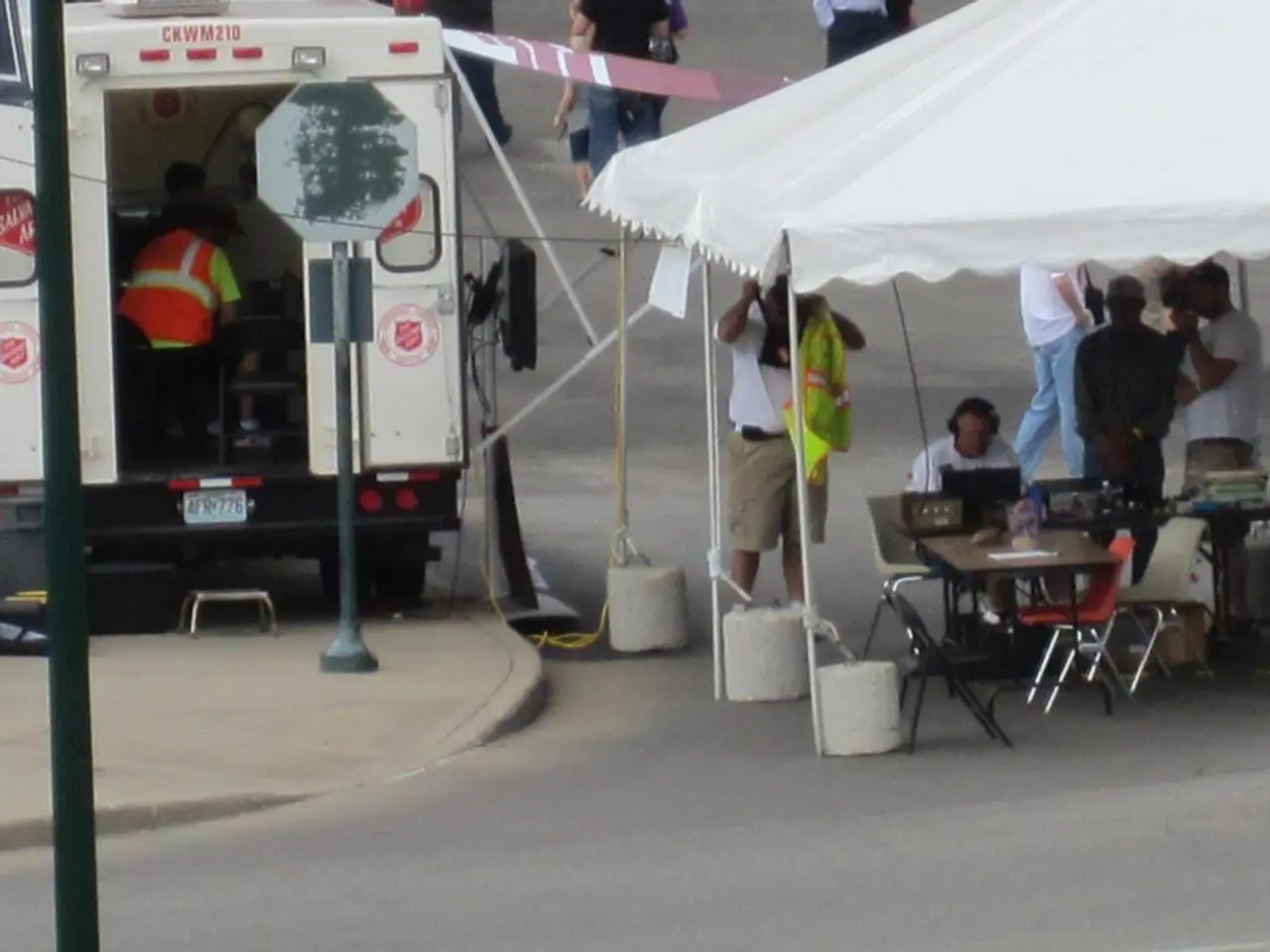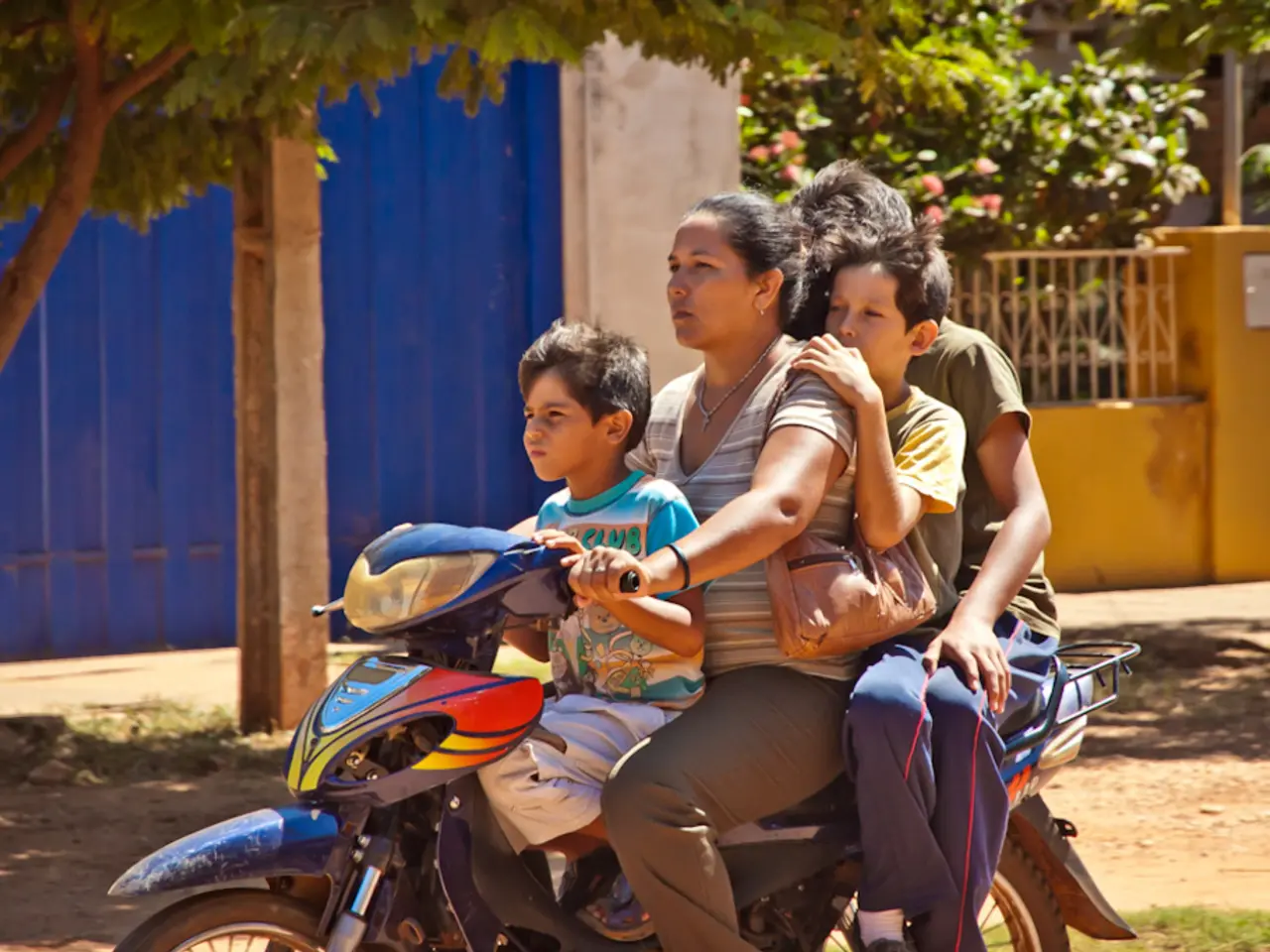Under extreme fuel scarcity, anxious pediatricians in Gaza are compelled to house multiple newborns within a single incubator, as the energy crisis escalates to a critical stage.
In the heart of the Middle East, the embattled region of Gaza is facing an unprecedented humanitarian crisis, with fuel shortages threatening to disrupt healthcare services for half a million people in the Central Governorate.
The fuel blockade, ongoing for over 17 weeks, has led to a critical shortage of fuel in Gaza, causing the shutdown of critical operations, including those vital for healthcare and water desalination. Gaza heavily relies on diesel fuel, which powers generators that run essential systems such as medical equipment and water desalination plants. The lack of fuel has severely strained these operations.
Hospitals are facing significant challenges due to the fuel shortage. Generators powering medical equipment can only run intermittently, with some hospitals experiencing electricity for as little as three to four hours a day. This has led to supply shortages, with hospitals running low on medical supplies, and ambulances often out of service due to the lack of fuel. The United Nations Office for the Coordination of Humanitarian Affairs (OCHA) has warned of a rapid deterioration in the humanitarian situation, highlighting the risk of increased deaths unless fuel supplies are restored.
Beyond healthcare, the fuel shortage is also affecting water networks, which are on the verge of collapse. This has led to a significant decrease in access to clean water, further complicating the humanitarian crisis. The situation is compounded by displacement orders and ongoing conflict, making even the safest areas increasingly unsafe for residents.
Doctors Without Borders (MSF) warns of an unprecedented humanitarian crisis unfolding in Gaza and calls for a ceasefire and the entry of far greater levels of humanitarian aid. Israel has restricted the entry of fuel throughout the conflict, citing potential use for weapons by Hamas. MSF teams have been treating the wounded and supplying overwhelmed hospitals amid indiscriminate attacks and a state of siege that threatens millions of people in Gaza.
The situation is particularly dire for Al-Shifa Hospital in northern Gaza, which is closing its kidney dialysis sections due to fuel shortages. If fuel is not made available to Al-Shifa hospital in the next few hours, the hospital will become out of service in the next three hours, potentially leading to a high number of deaths. The Nasser Medical Complex in Gaza has 24 hours of fuel left and is prioritizing vital departments such as maternity and intensive care.
Beyond hospitals, fuel is essential for basic services in Gaza, including cooking, desalination, wastewater plants, and rescue vehicles. The little fuel supplies available are running short, and "virtually no additional accessible stocks left." The Office for the Coordination of Humanitarian Affairs (OCHA) warns that the deaths caused by the fuel crisis could rise sharply unless Israel allows new fuel in. The UN warns that the fuel crisis in Gaza is at a critical point.
As the situation in Gaza continues to deteriorate, the international community is urged to take action to prevent the erasure of Palestinians from Gaza. MSF urges Israeli authorities and complicit governments, including the UK Government, to end the siege and take action to prevent the erasure of Palestinians from Gaza.
- The fuel shortage, a critical issue in Gaza, extends beyond healthcare services, affecting the general news and health-and-wellness of half a million people.
- The ongoing war-and-conflicts in the Middle East's Gaza region have further complicated the situation, with a fuel blockade disrupting vital operations such as medical-conditions, water desalination, and basic services.
- The Middle East's political landscape is impacted by the humanitarian crisis in Gaza, as Doctor's Without Borders (MSF) appeals for a ceasefire, more humanitarian aid, and an end to the fuel blockade.
- The world watches as the situation in Gaza unfolds, with the United Nations issuing warnings about the critical point the fuel crisis has reached and the potential increase in deaths without immediate intervention.




